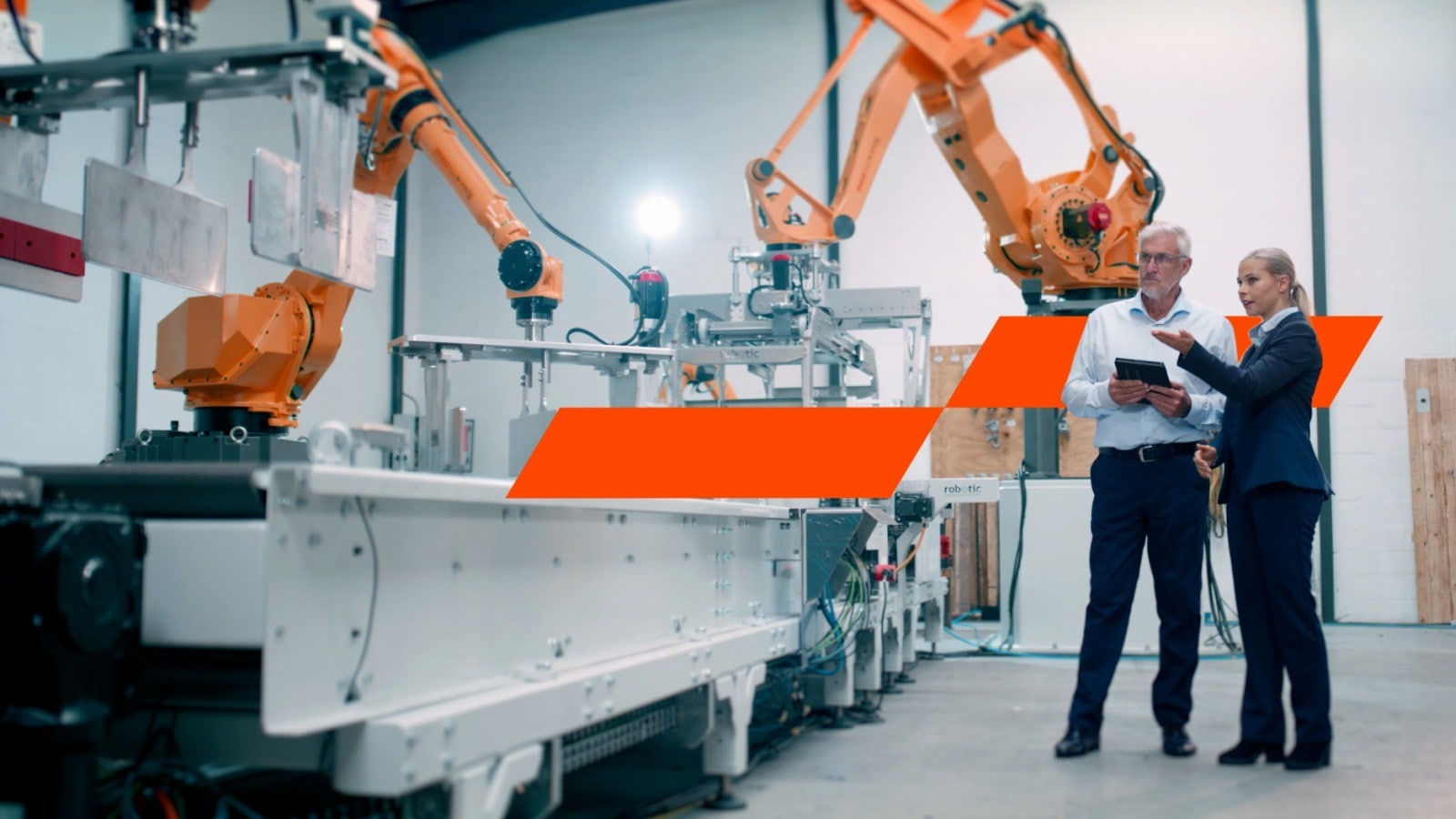Message from Kevin Burrowes, CEO PwC Australia
Message from Kevin Burrowes, CEO PwC Australia
Successful CEOs need both a microscope and a telescope to help them identify near-term threats while spotting long-term opportunities. This tension across time horizons is a recurring theme in PwC’s 29th Global CEO Survey.
Through the microscope, Australia’s CEOs have a renewed confidence in the economy and are feeling positive about revenue outlook and their companies’ long-term viability. Through the telescope, the number one concern for Australia’s CEOs is transforming their business fast enough to keep up with technological change, with a significant apprehension about whether they’re doing enough to ensure their organisation is viable in the medium- to long-term.
Leading CEOs are focusing on multi-year opportunities to reinvent for growth—forging ahead with AI investment, prioritising innovation and entering new sectors as industries reconfigure. The survey shows Australia’s CEOs are planning ahead in critical areas: 67% say they are investing in emerging technology in the next twelve months, 47% have begun competing in new sectors in the last five years (compared with 42% globally), and 44% view innovation as a critical component of overall business strategy. Rather than planning for problems, these CEOs are planning for future solutions.
Among key findings from this year’s survey:
- Australia’s CEOs are more optimistic about the nation’s economic outlook in the next 12 months (58% up from 35% last year), and confident in revenue growth (49% up slightly from 47% last year) despite less CEOs reporting market share gains than last year (44% versus 51% last year).
- Transforming fast enough to keep up with tech, including AI, is the number one concern, yet only 28% of Australia’s CEOs believe their current AI investment levels are sufficient to deliver their goals.
- This gap likely explains why only 14% of Australian companies report revenue gains from AI—well below the global average of 30%—despite increasing trust in the technology.
- Short-term pressures are crowding out long-term reinvention. More than half of Australia’s CEOs' time is spent on short-term matters, with only one day every two weeks devoted to long-term issues, compared to one in six days by their global peers.
- Innovation capability—vital for reinvention—is also being impeded. Close to half (44%) of Australia’s CEOs say that innovation is central to their company’s business strategy – but only a third (31%) believe their company’s innovation capability is adequate for an uncertain future.
- Australian companies are perfectly positioned to seize Asia-Pacific’s $4.7 trillion growth wave. However, investment patterns remain anchored in traditional markets – a shift in focus will be needed to unlock the region’s dynamic potential.
The CEOs who match their optimism with action will build tomorrow’s revenue engines, while those who don’t risk being outpaced by competitors who plan for reinvention.
Explore the findings
The route to profitable growth: Where investment needs to flow
Australia’s CEOs are clear on transformation priorities—AI investment, innovation, and entering new sectors top the list. But the challenge isn’t awareness; it’s delivery. In an uncertain environment, the smartest investments are ‘no-regret choices’ — consistent courses of action that create value across multiple possible futures—and forward-looking organisations are moving fast.
Balancing profit pressure with long-term transformation
There’s a strong sense of positivity in the next twelve months among the CEOs we surveyed in Australia. Optimism about Australia’s economic outlook is renewed (58% expect a net increase in economic growth in the year ahead, up from 35% last year) and most (70%) believe their businesses will be economically viable for more than 10 years if they continue down their current path. Half (49%) are very or extremely confident in their revenue growth prospects in the next twelve months (up from 47% last year), bucking the global trend of falling confidence in revenue growth, where only 30% of Global CEOs are very or extremely confident, down from 38% last year.
Revenue growth outlook
Bullishness reigns. The challenge is translating this confidence into action.
Asked about their biggest concerns, CEOs put transforming fast enough to keep up with the scope and pace of technological change, including AI, as a clear number one concern, with more than half (58%) identifying this as an issue. More than a third (37%) included the question of whether they’re doing enough to ensure their organisation remains viable in the medium- to long-term as a core concern. Yet our survey data shows only one day per working fortnight of CEOs’ schedules is devoted to long-term issues such as new revenue streams, innovative partnerships and business model transformation. Globally, it’s about one day in six.
Top five greatest concerns
While high uncertainty makes strategic planning more difficult, CEOs can look at a range of possible futures and make no-regrets choices to build resilience regardless of which scenario unfolds.
From threat recognition to action
Australia’s CEOs are recognising threats such as cyber, availability of key skills and macroeconomic volatility as their top three risks; this is an important step towards mitigation. Almost half of surveyed CEOs in Australia (44%) are improving cybersecurity to defend against attacks. 68% say their top ambition for the year ahead is a focus on upskilling people and half (47%) of Australia’s surveyed CEOs report they have begun competing in new sectors or industries.
In comparison to global peers only 8% are reconfiguring supply chains (versus 17% globally), while the tariff concerns that preoccupy global CEOs (20%) barely register here (6%), and Australia’s CEOs feel insulated by different export profiles.
Threat exposure
Cyber risks are viewed by CEOs as the number one threat for the coming twelve months; the rising prominence of cybersecurity among Australia’s CEOs is tied to escalating geopolitical risks that increase the likelihood of cyber-attacks or disruptions. As well as improving cybersecurity to defend against attacks 62% of Australian organisations are boosting their investment in cyber risk management specifically in response to this geopolitical volatility. CEOs recognise that effective cybersecurity is about proactive readiness—engaging in continuous monitoring, rigorous assessments, regular testing, robust controls, and comprehensive training well before any incident occurs. By focusing on these no-regret measures rather than relying on reactive responses such as remediation or litigation, companies can reduce both financial and operational risks. This strategic shift reflects a growing understanding that investing early in cybersecurity capabilities is more sustainable and cost-effective amid an uncertain global landscape.
Australia’s CEOs are broadening their horizons by venturing into new sectors
Almost half (47%) of Australia’s surveyed CEOs report they have begun competing in new sectors or industries, up significantly from 30% last year and ahead of the global average of 42%. This marks a meaningful shift in the strategic intent of Australia’s CEOs.
When exploring new sector opportunities, they are primarily targeting industrials and services (39%), financial services (33%), and technology, media, and telecommunications (32%).
Venturing into new sectors or industries
As the collision of technology, climate change, geopolitics and other megatrends create new customer needs and preferences, blurring the lines between industries — energy companies become technology providers, retailers enter financial services — this convergence creates new opportunities. The increase reflected in our data indicates Australia’s CEOs are aware of this evolving landscape.
Global data from this year’s survey shows playing an active role in industry reconfiguration is paying off. There is a strong association between a higher percentage of revenue coming from new sectors, higher profit margins, and greater CEO confidence in company growth prospects.
In Australia, CEOs report payoffs to varying degrees. Only a third (29%) of Australia’s surveyed organisations generate more than 20% of revenue from new sectors they’ve entered over the past five years.
When it comes to competing in new sectors or industries, some of Australia’s organisations are making exploratory moves, while others are already making material shifts. Whether they’re pilots or pivots, all are indicators of progress, and some will evolve into strategic commitments that deliver real returns.
Capital flows are reconfiguring, but Australia is anchored to traditional markets
Investment patterns remain anchored to 20th century markets. Half (49%) of Australia’s CEOs don’t plan to make international investments in the next 12 months. Of those planning to invest, Australia’s top three international destinations for investment are US (49%), UK (31%), and NZ (29%). Investment in mainland China has risen slightly from 11% to 14%, although this is still well below English-speaking markets. Amid a new world trade order, the Asia Pacific region is emerging as a centre of growth and opportunity with almost $4.7 trillion in value on the table. It is the biggest driver of global growth, contributing around 60% this year and next.1 Yet Australia’s top investment destinations remain English-speaking, Western markets. To seize the potential of Asia’s dynamic markets, Australian companies should favour opportunity over familiarity to unlock the potential of this region's dynamic markets.
First movers are building compounding advantages: market knowledge, relationships, operational presence, and talent networks, but cultural barriers, language barriers, regulatory complexity, and a lack of manufacturing touchpoints create friction for investment in Asia. These barriers work both ways. Inbound investment remains stagnant with 5% of surveyed CEOs globally planning to invest in Australia in the next 12 months. More CEOs in Japan are planning to invest in Australia (9% up from 2% last year) while fewer CEOs in the US are planning investments here (5% down from 15% last year). This is unsurprising given the geopolitical landscape; Treasury has acknowledged hurdles for foreign investment into Australia and is planning reforms to streamline and strengthen Australia’s foreign investment settings.2
Appetite for acquisitions is sustained, and the playbook is evolving
Fifty-two percent of Australia’s surveyed CEOs are planning major acquisitions worth more than 10% of company assets in the next three years. Deal volumes have increased by 19%3. Despite high cost of capital, elevated interest rates, and wide valuation gaps, significant dry powder from superannuation funds, private equity, and corporates is driving activity.
This is also playing out as forward-looking leaders are looking to leverage transactions as a catalyst for transformation: consolidate portfolios, pursue acquisition-led growth and innovation, and divest to refocus on the core and redeploy capital. When asked about planned acquisitions, 27% of CEOs reported seeking acquisitions outside their existing core sector or industry, often via minority stakes in strategic targets, stepping into adjacent or new sectors with flexibility to scale to majority ownership.
This staged approach allows market understanding and cultural fit to be tested before full commitment. In an uncertain environment, where CEOs are reluctant to make big bets, minority stakes are a no-regrets choice—building optionality without requiring full commitment. Deals only create value if integration is successful – and integration must deliver transformation, not just optimisation.
Even as traditional majority acquisitions and a focus on partnerships continue, more inventive deal strategies are taking hold - designed to open doors to several future growth pathways in a highly uncertain business environment.
Reinvention: Building tomorrow’s revenue engines
The reconfiguration of industries around human-centric domains of growth over the coming decade will see the reward go to leaders who are ready to reinvent their business models. But despite strong intent, many CEOs acknowledge a gap between the innovation capabilities they have today and what an uncertain future demands.
This is reflected by one of the top three concerns of Australia’s CEOs: whether their innovation capabilities are strong enough to navigate an uncertain future (31%). We asked about six innovation-friendly practices; only nine percent of Australia’s CEOs say their company has implemented at least five of the six to a large or very large extent.
The pay-off for embracing innovation is not just long-term. In Australia, the organisations that close this gap—building systematic innovation capability—achieve 2.1x greater revenue from new products and services, along with faster overall growth and higher profit margins according to our survey. These practices are proven, and the reward is substantial.
Innovation capability
Our data shows 91% of local companies have established innovation capabilities in less than five areas. There are positive signs, such as increased collaboration with external partners and testing new ideas with customers, and half of all CEOs say innovation plays a central role in their company’s business strategy; however, there is a gap between aspiration and reality when CEOs are asked about specific practices that support innovation.
Only one in five CEOs agree to a large or very large extent that their company tolerates high-risk innovation projects, has routine processes in place to stop underperforming R&D projects, or has a defined innovation center, incubator, or corporate venturing division. These practices aren’t aspirational, they’re foundational for transformation.
Balancing cost discipline with capability investment
Confidence in revenue growth in Australia (49% up slightly from 47% last year) is more optimistic than our global peers (30%, down from 38% last year). However, it comes with a caveat: fewer CEOs are reporting market share gains than last year (44% versus 51%), and most revenue comes from existing products and services rather than new ones. Sixty-four percent of Australia’s CEOs say 1-19% of total revenue comes from products or services introduced in the past three years.
Market share
Productivity constraints mean new profitable growth must come from new business models, new markets and investments in new capabilities. Australia faces declining productivity, declining potential GDP growth, and declining per capita capital stock after decades of prioritising dividend payments over reinvestment.
This suggests growth confidence may be based on cost discipline combined with current business models and market position—not competitive gains or innovation. Only a third (31%) of Australia’s surveyed CEOs believe their company’s innovation capability is adequate for our uncertain future. This is a concern for the nation more broadly since Australia ranks as one of the world’s least complex economies according to Harvard Growth Lab’s Atlas of Economic Complexity.4
This cost-first mindset extends to how transformation is funded. Many of Australia’s CEOs prefer savings to cover new capabilities rather than committing fresh capital, and some expect transformation to fund itself through operational efficiencies before generating investment. While this approach can be seen as prudent, it may also result in change progressing only as quickly as savings are realised. Organisations that combine disciplined margin management with strategic investment in capability can put themselves in a position to capture value across multiple scenarios, achieving today’s profits and tomorrow’s growth.
Barriers to reinvention
Direction-setting (strategy, annual planning, corporate review) is performing above CEOs’ expectations (44%), and half (49%) of Australia’s surveyed CEOs believe their companies are faster to market than peers in introducing new products and services. Twenty-two percent of Australia’s CEOs report high flexibility in responding to demand-side variability—shifting customer spending and changing customer preferences.
Speed and flexibility are a valuable competitive asset when aimed at the right targets, it matters most when it accelerates fundamental transformation rather than marginal improvements and this adaptability is valuable in uncertain markets.
Operational performance
Vulnerability and barriers are, however, apparent. Demand generation (sales, marketing, customer services) and technology-related functions are performing below CEOs’ expectations. Bureaucratic processes (39%) and technology constraints (32%), such as technology debt and siloed data, are inhibiting operational performance. On the supply side, exposure is concentrated in primary industries (resources, agriculture, manufacturing), where dependence on China creates exposure. Services, banking and telecommunications feel more insulated, which may explain why only 8% of Australia’s organisations are reconfiguring supply chains (versus 17% globally). Supply chain vulnerability is not a small problem, just a concentrated one—but disruptions ripple across the economy. When primary industries face supply shocks, services sectors feel downstream effects through customer impact, economic slowdown, and currency volatility.
Australia’s CEOs are recognising geopolitical risks, and the opportunity now is to take advantage of today’s (relative) stability to address underlying vulnerabilities to prepare for tomorrow’s volatility. Organisations that build supply resilience during periods of stability can act more strategically and cost-effectively than those forced to react during a crisis.
From ambition to action
Australia’s CEOs recognise transformation is urgent. Their number one concern is transforming their business fast enough to keep up with the scope and pace of technological change, and they’re alert to the challenge: 37% are concerned about whether they’re doing enough to ensure their company remains viable in the medium-to long-term, even as most (70%) believe their business will be viable for 10+ years if they remain on their current path.
Given fundamental uncertainties, this ‘alert but not alarmed’ mindset can be galvanising for leaders. It often leads to meaningful action, with CEOs investing into no-regret capabilities such as execution capability, innovation practices, and workforce development—investments that add value regardless of which future unfolds. The difference between intent and outcome comes down to delivery.
Artificial intelligence: Turning awareness into advantage
With CEOs listing their number one concern as transforming their business fast enough to keep up with the scope and pace of technological change, investment in emerging technology including AI is a high priority, and they’re aware their capabilities need strengthening. Only 28% believe their current investment levels are enough to deliver on their AI goals (compared with 40% globally), and only 28% can attract high-quality technical AI talent (42% globally).
The talent challenge reflects broader patterns in how organisations are approaching AI adoption. Many are applying tried and tested methods for attracting and retaining technical talent—focusing on traditional IT roles and governance frameworks—when transformation requires different thinking. The market demands bold moves, and Australia’s businesses have an opportunity to accelerate capacity building, particularly around internal talent development, to close the gap between ambition and execution.
AI infrastructure exists; investment timelines need acceleration
A good news finding from this year’s survey: almost half (47%) of Australia’s surveyed CEOs have a clearly defined AI roadmap (globally: 51%), while two thirds (66%) say their culture enables AI adoption, and 63% say their technology environment enables integration.
However, when we looked across foundational practices fewer than a fifth (18%) of local companies have built strong AI foundations; 82% of local companies and 79% of global companies have AI foundations in less than six areas; across AI tools, the tech environment, or responsible AI and risk processes.
AI practices
What we see is that CEOs in companies with stronger AI foundations are reporting better outcomes; 2.6 times revenue increases and 2.5 times cost decreases than those who haven’t established that fundamental basis. When a range of foundations for AI adoption are in place, genuine opportunity is created.
The challenge is matching investment timelines with transformation requirements and Australia’s CEOs recognise this gap. Creating operating environments where AI agents are fully integrated with human workflows takes 18–24-month commitments. Australia also faces infrastructure considerations; new AI capabilities announced in the US can take 12-18 months to become fully available in Australia-based secure infrastructure due to cloud residency requirements.
Organisations that made material investment two years ago are now capturing outsized profitable growth from AI-driven transformation. Global peers who have moved through this barrier by investing at scale are starting to see results: 30% of global CEOs report revenue gains from AI compared with 14% in Australia.
The chatbot ceiling: moving beyond incremental gains
Integration of AI is progressing relatively slowly in Australia, with only 12% of CEOs applying AI to a large/very large extent to products, services, and experiences compared to 19% globally. Many organisations aim for moderate productivity gains of 10-20% through augmentation like chatbots, while those adopting AI-first design principles see much higher ROI of 200–400%.
While the chatbot-led approach helps build corporate AI literacy, half-measures deliver limited value and can erode trust in AI’s potential. The Survey shows trust in AI is growing; 37% of Australia’s CEOs have a high degree of trust in AI (up from 31% last year). This measured optimism shows how AI integration and trust concerns are evolving as organisations gain experience with the technology and strengthen their risk practices.
Early concerns about the reliability of AI have largely been resolved through proof-of-concept projects. Current concerns have shifted to focus on whether AI delivers meaningful value. Emerging concerns centre on confidence in AI execution capability: Can we successfully deliver and sustain AI transformation at scale? Do we have the people and partnerships in place? Are our processes mature and our controls embedded?
The real opportunity lies in comprehensive transformation—embedding AI-first design and redesigning the entire value chain. Starting with back-office operations before customer-facing functions often proves strategically wiser, enabling organisations to build confidence and capabilities before wider AI deployment.
Crucially, investment and trust need to develop in parallel, not sequentially. Organisations that wait for complete confidence find themselves caught in a cycle: without material investment, there’s limited proof of value and a lack of mature AI capability; without proof, there’s reticence to invest. Breaking the cycle requires committing to transformation timelines that result in AI adoption at scale. Action creates trust through demonstrated results and lessons learned, and organisations that start moving now position themselves to capture advantages as capabilities mature. The AI innovation curve is steep with no sign of slowing down in the near future. A 12‑month delay in meaningful progression can result in competitors developing hard to overtake leads.
AI and the workforce: Capacity builder, not just cost-cutting tool
Australia’s CEOs expect AI adoption to reshape workforce composition, with more than half (52%) anticipating impacts at junior levels (analysts, associates, functional staff) in the next three years, and 32% seeing mid-level roles affected. Only 11% believe senior leadership roles face disruption.
AI and headcount
Q. For the following groups, how do you expect your company’s AI adoption to change your employment levels in the next three years?
Base: Respondents who have applied AI to at least a limited extent in one or more area of the business (n = 106).
Note: Numbers may not total 100% due to rounding.
Source: PwC’s 29th Global CEO Survey
AI will compress organisational hierarchies and accelerate leadership development timelines. Junior employees will be responsible for managing AI outputs, a shift that requires strong strategic decision-making and has the potential to place them in leadership positions almost immediately. When CEOs successfully connect skills and technology strategy to long-term business model reinvention, there’s an opportunity to supercharge productivity and reimagine revenue streams.
For senior leaders, the displacement risk doesn’t immediately come from AI, but from other leaders who master AI-enabled transformation. Selection criteria for executive roles increasingly emphasise the ability to lead organisations through AI transformation.
Organisations that view AI as a tool for margin optimisation overlook its potential as a growth engine. Those that redeploy freed capacity towards product and service innovation, customer relationships, and new business models can build competitive advantages their cost-focused peers won’t match.
Harnessing value from freed capacity
A key challenge facing Australia’s CEOs is balancing care for people with the need to reduce labour costs. Seventeen percent of surveyed CEOs in Australia identified this as a key concern, reflecting a genuine tension—but it doesn’t have to be an either-or decision.
AI will remove parts of roles (administrative tasks, routine analysis, procedural work), requiring redeployment and reskilling. Organisations that value and retain workers while reskilling with AI competencies hold onto institutional knowledge and build loyalty are best placed to develop some critical AI capabilities internally rather than having to retain and hire them in from the (tight) skills market.
Currently, displacement is mostly offshore or in outsourced roles where labour costs exceed AI but remain lower than in-house staff. These positions face the greatest replacement risk.
The strategic question is what happens to that freed capacity? Organisations can reduce headcount to capture cost savings and optimise margins, redeploy capacity to value-adding work including new revenue streams, innovation, customer relationships, and strategic thinking. But AI enables growth only where CEOs redirect extra capacity up the value chain.
Whole-organisation transformation means identifying where AI builds capacity and funnelling talent into creative and strategic work such as upskilling workers, promoting workforce participation, and reimagining what the organisation can achieve. CEOs who choose capacity building over cost cutting could unlock competitive advantages their peers cannot easily match.
Competitive advantage lies in taking a people-first approach, and the evidence supports this. PwC’s Global Workforce Hopes and Fears Survey 2025 shows optimism about AI’s impact on the workforce greatly outweighs anxiety, suggesting employees are ready for this transformation when effectively led.
Making workforce participation and ethical considerations central to transformation unlocks AI’s full potential, and that potential sits in CEOs’ hands.

























